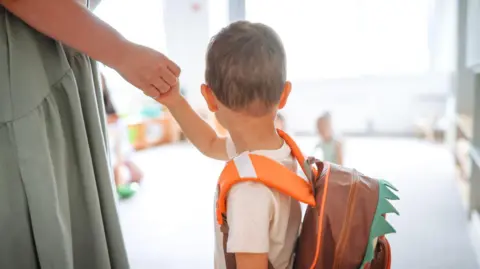Parents' 'sharenting' linked to higher risk of identity theft and online harm for children, study finds
University of Southampton survey of more than 1,000 UK parents finds widespread posting of children’s images; one-in-six reported harms, prompting safety warnings
Researchers at the University of Southampton say children whose images are posted online by parents face an increased risk of harassment, cyber-bullying and identity-related crime later in life, according to new research reported by the BBC.
The study surveyed more than 1,000 parents in the United Kingdom and followed up with in-depth interviews. It found that 45% of parents surveyed actively posted photos or videos of their children on social media. One-in-six of the parents who took part said their child had experienced some form of harm after images were shared online.

The practice, sometimes called "sharenting," has become commonplace as parents document milestones and everyday moments. The research team said the widespread distribution of children’s images increases the digital footprint available to third parties and can heighten the risk of children becoming victims of cyber-crime.
"These findings highlight the serious risks which children can face when photos and videos of them are shared widely on social media," Rani Govender, child safety online policy manager at the UK children’s charity NSPCC, told the BBC. "Sharing photos or videos of children at scale across the online world can put their safety, privacy and wellbeing at risk."
The report did not quantify all types of harm experienced but said harms ranged from online harassment and bullying to concerns about identity misuse later in life. The researchers conducted follow-up interviews to gather parents’ experiences and perceptions of risk, and used that qualitative work to supplement the survey results.
Campaigners and academics said the findings raise questions about how technological developments might amplify existing risks. As facial-recognition systems and synthetic-media tools mature, images shared publicly could be more easily analysed, matched or manipulated, according to child-safety advocates and experts who have raised concerns in recent years.
The study's authors and child-safety groups urged parents to weigh the benefits of sharing against the potential long-term consequences for children’s privacy. They pointed to measures such as reviewing social-media privacy settings, limiting audience size, and thinking about how often and what kinds of images are posted.
The research focused on parents in the UK and did not aim to measure global trends or produce a direct causal link between posting and every specific harm. Nonetheless, the findings add to a growing body of work documenting the unintended consequences of posting children's images online and underline ongoing debates about digital privacy in the age of rapidly evolving technologies.
The University of Southampton study follows other research and advocacy efforts that have called for clearer guidance for caregivers and for social platforms to improve protections for children. Policymakers, child welfare organisations and technology companies are all part of ongoing discussions about how to reduce risk while allowing families to share memories online.

The report has renewed calls from child-safety organisations for parents to consider the permanence of online posts and for platforms to provide clearer, more child-focused privacy tools. Researchers said further study is needed to track long-term effects and to develop evidence-based guidance for parents and industry alike.